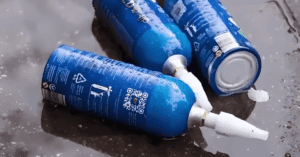Depo-Provera Brain Tumor Lawsuit
The attorneys at Nigh Goldenberg Raso & Vaughn are now investigating claims of Depo-Provera causing meningiomas or brain tumors. Depo-Provera, manufactured by Pfizer, is a popular contraceptive that is administered by injection, preventing pregnancy for up to 3 months. Depo-Provera has been on the market for decades, and it is estimated that approximately 20% of women in the United States have taken Depo-Provera.
New Study: Depo-Provera Greatly Increases Risk of Brain Tumors
In March of 2024, a groundbreaking study was published in the British Medical Journal titled Use of Progestogens and the Risk of Intracranial Meningioma: National Case-Control Study. The study found that Depo-Provera (medroxyprogesterone acetate), increases the risk of developing a brain tumor or meningioma by over 400%! The risk of developing a brain tumor further increased the longer one took Depo-Provera.
Pfizer Acknowledges Study Showing Depo-Provera Increases Risk of Brain Tumors
Shortly after the study was published linking Depo-Provera to meningiomas and brain tumors, Pfizer released the following statement, “We are aware of this potential risk associated with long-term use of progestogens and, in collaboration with regulatory agencies, are in the process of updating product labels and patient information leaflets with appropriate wording.” Pfizer then updated the prescribing information for Depo-Provera to include a statement that meningiomas (brain tumors) had been reported after exposure to the hormone used in Depo-Provera.

However, now approximately 6 months since the study was published linking Depo-Provera to an increased risk of brain tumors, Pfizer has still not updated the warning label or instructions for use for Depo-Provera.
What is An Meningioma?
A meningioma is a tumor that grows from the membranes surrounding the brain or spinal cord. While not technically a brain tumor, meningiomas are frequently referred to as a brain tumors. In fact, meningiomas are the most common type of “brain tumors.” The recent study discussed above found many of the meningiomas or tumors caused by Depo-Provera to be in the middle of the brain. Even though these tumors caused by Depo-Provera are frequently found in the middle of the brain, they can be asymptomatic and not require treatment other than medical monitoring and imaging to make sure the meningioma has not progressed. However, once a meningioma has become symptomatic due to its size, brain surgery is typically required, and sometimes radiation is needed even after removal.
Meningioma Severity (Grades)
The severity of a meningioma is primarily based on its location and grade. Most of the meningiomas associated with Depo-Provera occur in the middle of the brain, which is among the most problematic location for a meningioma to occur. Meningiomas are then graded based on the appearance of the tumor cells under a microscopic (removal is necessary to grade a meningioma). Meningiomas are graded 1 – 3, with grade 1 being by far the most common, and are typically asymptomatic.
- Grade 1 Meningioma: These are benign, noncancerous brain tumors that grow very slowly and have distinct borders. Approximately 80% of meningiomas are grade 1. The 5-year survival rate is 85-95%, and the 10-year survival rate is 80-90%.
- Grade 2 Meningioma: These are known as atypical meningiomas, which simply means the tumor cells do not look normal or typical; however, they are not cancerous, at least not yet. There is a risk that a grade 2 meningioma will become cancerous (grade 3 meningioma). Grade 2 meningiomas grow faster and have a higher rate of recurrence after removal. Approximately 16-18% of meningiomas are grade 2. The 5-year survival rate is 65-75%, and the 10-year survival rate is 50-60%.
- Grade 3 Meningioma: These are cancerous (also called malignant or anaplastic), aggressive tumors that frequently invade actual brain tissue as well. Approximately 2-4% of meningiomas are grade 3. The 5-year survival rate is 55-60%, and the 10-year survival rate is 25-30%.







